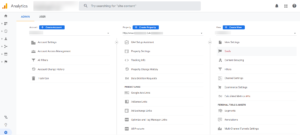KERBSTONE / Pixabay
In the kingdom we call the internet, keywords—the words you type into a search engine—wear the crown. Here’s how you can build a list and then present those keywords in your writing so search engines love you.
Keywords are what connect us to what we’re looking for online. Search engines will garner results for your search in large part by matching your keywords with web pages.
Let’s take a closer look at simple ways you can use keywords to get noticed online.
Search Engines & SEO
SEO is an acronym for Search Engine Optimization, which means boosting your website pages higher in search results. The higher your listing, the better chance you have of getting the ‘click’— and ultimately getting people to your website.
How Search Engines Work
In its simplest terms, search engines like Google and Bing have software bots (sometimes called ‘spiders’ because spiders make webs, and we have a world wide web) that crawl the internet reading web pages and indexing those pages in giant databases. When you do a search that matches keywords contained in the index databases, the search engine presents the results in a listing.
Keywords & Your SEO
The internet is driven by keywords. You search online using keywords. We even use the expression ‘Google it’ to suggest someone use keywords to search online.
Creating a Keyword List
As entrepreneurs, our job is to anticipate what keywords our customers will use to find our products or services. You can build your keyword list by brainstorming what words you think people will use to find your business. If you can talk to customers, or competitors’ customers; listen to the words they use to describe their problem. Odds are, they will use these same words in an online search.
Need a little more help creating your keyword list? Just ‘Google it!’ Type “keyword tools” into your search engine and you’ll find plenty of free, online tools, including the Google AdWords Keyword Tool.
Once you have an extensive list of potential keywords, you’ll need to do some editing. Remove duplicate and irrelevant words, and you should be left with a small list of what you think are the most popular—and most searched for—keywords.
Writing with Keywords
Write naturally without forcing keywords into your narrative. Search engines will read your web page in this order so try to have the page’s keyword in each of these sections:
- Meta tags (title and description) found in your website code (I’ll describe this in my next post);
- Title of your page;
- Page headings & subheadings (have your keyword in one or two of these).
- First paragraph;
- Remainder of page copy; and
- Alt text on images.
Warning About Overusing Keywords
Search engines are smarter than we think. If a page’s keyword appears in the meta tags, title, headings, etc., they will get the idea. Just as we don’t like a lot of repetition, neither do search engines. Write naturally, using your keyword, or variation of your keyword, as it fits naturally into the narrative.
Stay Tuned
Up next in this series: How to speak ‘search engine ‘ so you can make sure your web pages are search engine friendly.



